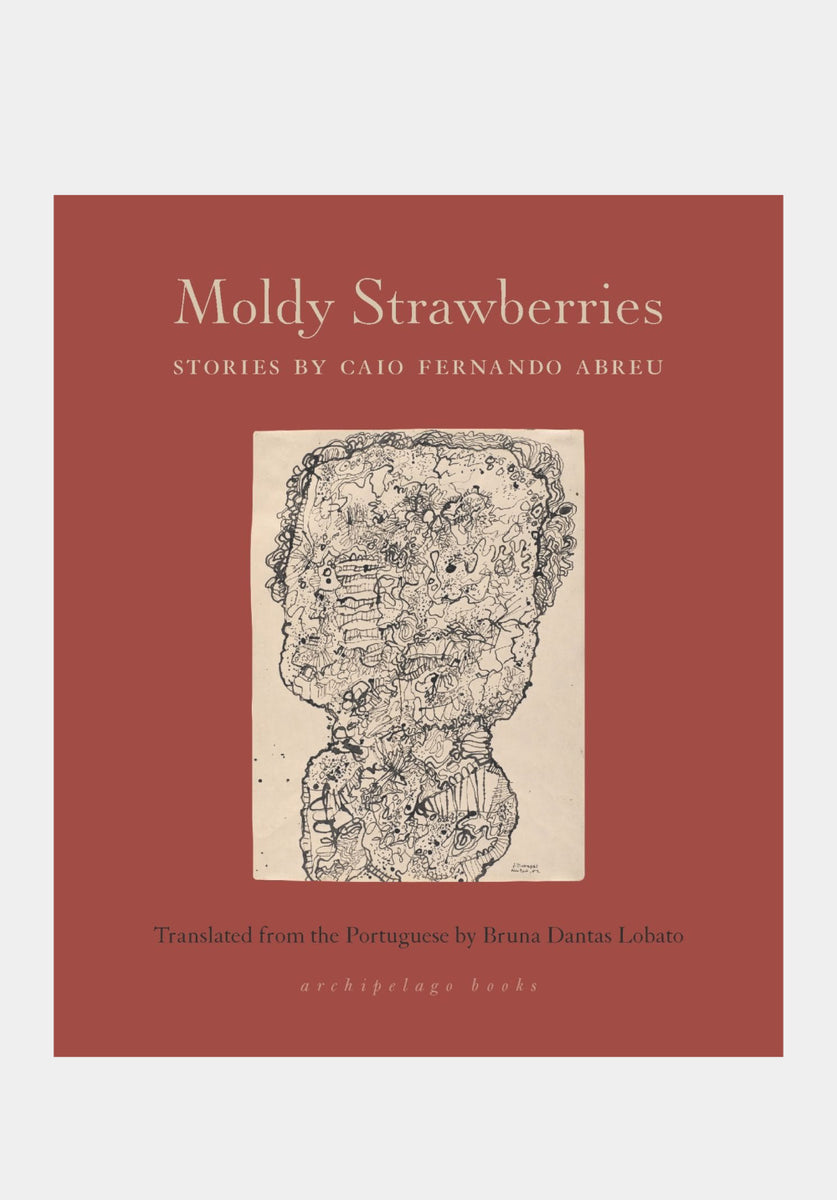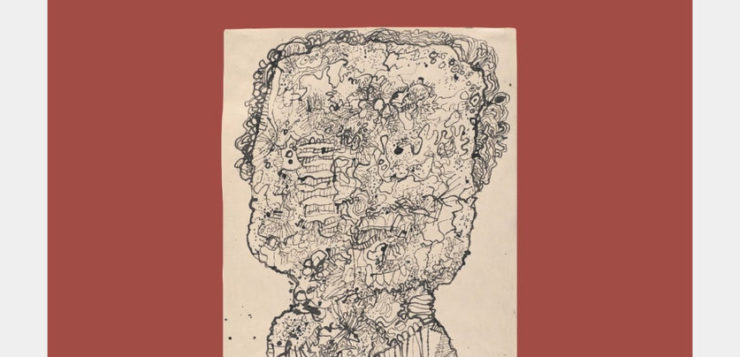 MOLDY STRAWBERRIES
MOLDY STRAWBERRIES
by Caio Fernando Abreu
Translated by Bruna Dantas Lobato
Archipelago Books. 200 pages, $20.
“AS FOR YOU, have you noticed how the world is all corners and edges?” Caio Fernando Abreu’s narrator asks in the story “I, You, He.” “Have I called your attention to the scarcity of gentle shapes in the world? Everything is hard, and wounds.” It is seeking the gentleness in this hard, angular world—as much his own as his characters’—about which Abreu writes in the eighteen brilliant stories that comprise the collection Moldy Strawberries, published in Portuguese in 1982 and translated here into English for the first time by Bruna Dantas Lobato.
Born in 1948, Abreu began his career as a journalist, and in 1968 was put on a watchlist by the Department of Political and Social Order for ideologies that went against those of Brazil’s military dictatorship. Throughout the subsequent decades until his death—he learned he was HIV-positive in 1994 and died two years later—Abreu became known as one of the most vibrantly original literary writers in Brazil, publishing over a dozen books, virtually none of which have been translated into English. This translation of Moldy Strawberries—forty years after it was first published—finally offers to English readers this important work of world queer literature.

Abreu’s stories are most transcendent when they spring from a single, often mundane situation or encounter: a late-night phone conversation; a man’s journey in the rain to meet his lover across town. With these deceptively simple moments as starting points, Abreu’s work expresses its core themes poignantly and potently: longing, the desire for connection in a disorienting and fracturing world. Dreams figure prominently, as do feelings of disillusionment, perplexity, and madness, always presented in richly poetic, often symbolic language. In “Music Box,” a man plays a music box for his lover as he recounts a dream that becomes a metaphor for their relationship. In “Pear, Grape, Apple,” the quotidian paves the way for the uncanny as a psychoanalyst studies his own mismatched socks while his patient speaks of plums, funerals, and childhood games.
Abreu, who was bisexual, writes with such nuance across a range of sexualities that often one’s sexual orientation is almost beside the point. (“He didn’t even look queer or anything: just a body that happened to be masculine enjoying another body, mine, that happened to be masculine too.”) In several stories, though, sexuality becomes part of the stakes. “Those Two” traces a casual friendship between two men that unfolds into a “strange and secret harmony” but must remain hidden in a conservative office environment. In “Fat Tuesday,” an ecstatic union in a crowded club gives way to a violent hate crime.
One of the collection’s strengths is its formal variety, which demonstrates Abreu’s mind at work taking stock of a complicated world. (“This light that could be either enlightenment or madness fills my head,” one character says, but perhaps this is also Abreu.) While some of the stories feature more conventional narratives, others are fevered, stream-of-consciousness, bursting at the seams—containers that overflow with Abreu’s imagination, philosophical and revolutionary ideas, contradictions, and zest for living.
Still others are self-reflexive, discursive. In “Companheiros (A Blurry Story),” Abreu writes: “[S]tories are never fully suspended: they’re consummated in their interruptions, they’re full of internal stops, what we imagine to be a continuation sometimes is nothing but a new chapter.” Indeed, though the stories in Moldy Strawberries are not explicitly connected to one another in terms of plot or characters, there is a distinct feeling of continuity and linkage among them.
Ultimately, despite the pain and longing that permeates much of the collection, there is never simply rot or decay. His characters often do find, in one form or another, the connection they seek, and those who don’t persist in their belief that they, too, might. “I won’t take any drastic measures, beyond keeping going,” one character says, “is there anything more self-destructive than persisting without faith?” For all the mold, there is always the strawberry—moist, juicy, bursting with flavor—underneath. Like the sides of a coin, one can’t exist without the other: the mold depends on the fruit, and any fruit will eventually mold.
So it is with so many of the intoxicating madnesses of living that the lyrical, richly textured stories in Moldy Strawberries explore. What is lucidity without unconsciousness, connection without disintegration, communication without misunderstanding? To this end, these stories seem to contain within them essential truths about living in the world that are just as true today as when they were first published. Let’s hope that this translation is the first of many to make Abreu’s work more known to English-language readers.
Giancarlo Latta is a violinist, writer, and composer based in New York.






